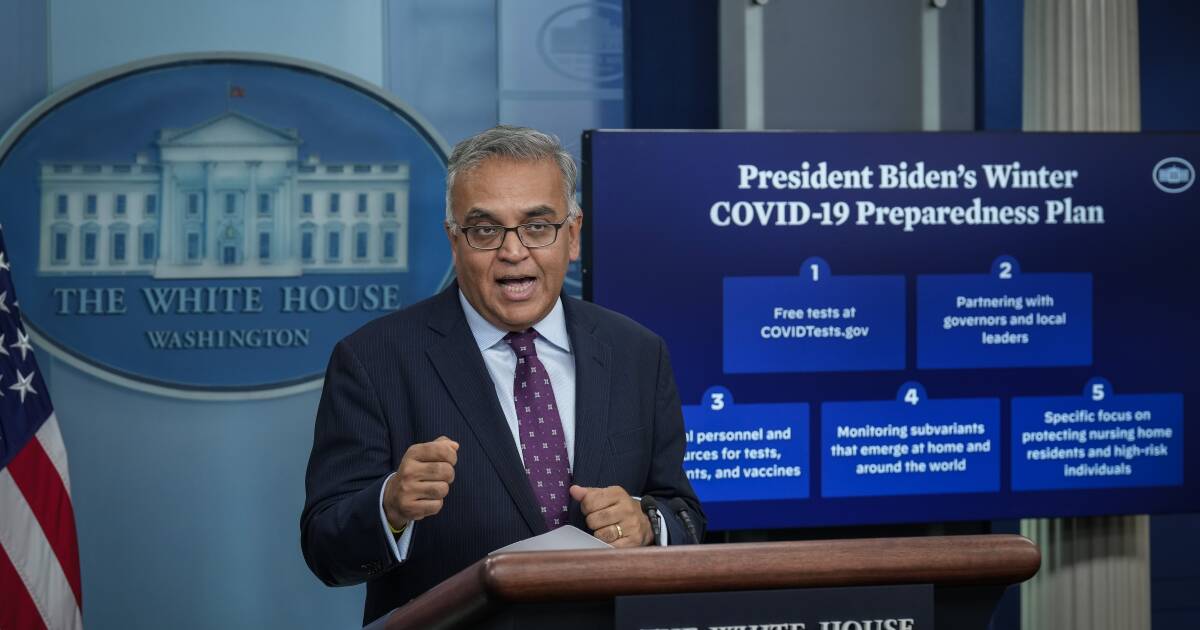
The CDC confirmed the first severe human case of bird flu in the United States on Wednesday. While the immediate health risk to the larger public remains low, it does spark the question: is the U.S. better prepared for another pandemic?
“Absolutely,” Dr. Ashish Jha, the former White House COVID-19 response coordinator under President Joe Biden, told Boston Public Radio on Thursday.
Jha is now the Dean of Brown University’s School of Public Health. He said the U.S. has made a number of improvements over the past four years, including better disease surveillance and faster vaccine production.
But preparedness must be an ongoing effort for President-Elect Donald Trump’s administration, he said. “And what I worry about is, will the Trump team take all of those gains and basically rip it apart, or continue? If they continue, we will be in better shape.”
Improving preparedness should include a national assessment of what went right and wrong during the COVID-19 pandemic, Jha said. Not to blame anyone for past mistakes, but to make sure the country does it better the next time. Some countries, like the United Kingdom, are doing this on the national level. Jha said he wishes the U.S. would do the same, because the risk of pandemics and biological threats are increasing, thanks to climate change and an increasingly globalized world.
“If we are smart … we can manage our way through them without having the kind of ridiculous shut downs and stuff that we had to do in 2020,” he said. “And being smart means knowing what you did right and what you didn’t do so well.”
According to Jha, one thing the U.S. didn’t do so well were school closures. Closing schools made sense in early 2020 when scientists were still learning about the new coronavirus and didn’t know if schools were major spreaders, he said.
Many public health officials — and even Jha — were cautious reopening schools in the fall of 2020. That was a mistake, Jha said, because Florida and other states without school closures did not see large outbreaks.
“By the end of September of 2020, it was very clear to all of us that all the schools should reopen. And obviously that did not happen,” Jha said. His children were in Newton public schools, which did not reopen that fall, a move he said was “super frustrating.”
To protect older and at-risk teachers and children, Jha said there could have been more creative solutions. For example, having older teachers teach remotely or not work with kids directly.
A pandemic post-mortem should also include an assessment of vaccine mandates, Jha said. It’s clear the mandates — which Jha advocated for — increased vaccination rates, but they may have helped fuel the anti-vaccination movement, he said.
“Public health does not work well when you start with mandates and forcing people to do stuff. It works much better when you engage in persuasion, where you understand where people are,” he said.
Once vaccines became more broadly available, public health officials should have done a better job trying to persuade people that vaccines were going to save lives, Jha said. The benefit of lives saved by vaccines in the short term may have come at the cost of a loss of trust from the public, he said.
“And in retrospect, I can go back and ask the question: ‘In the long run, did we do more good or more harm on public health?’” Jha said.
Sign up for the latest from GBH News delivered to your inbox three times a week.
